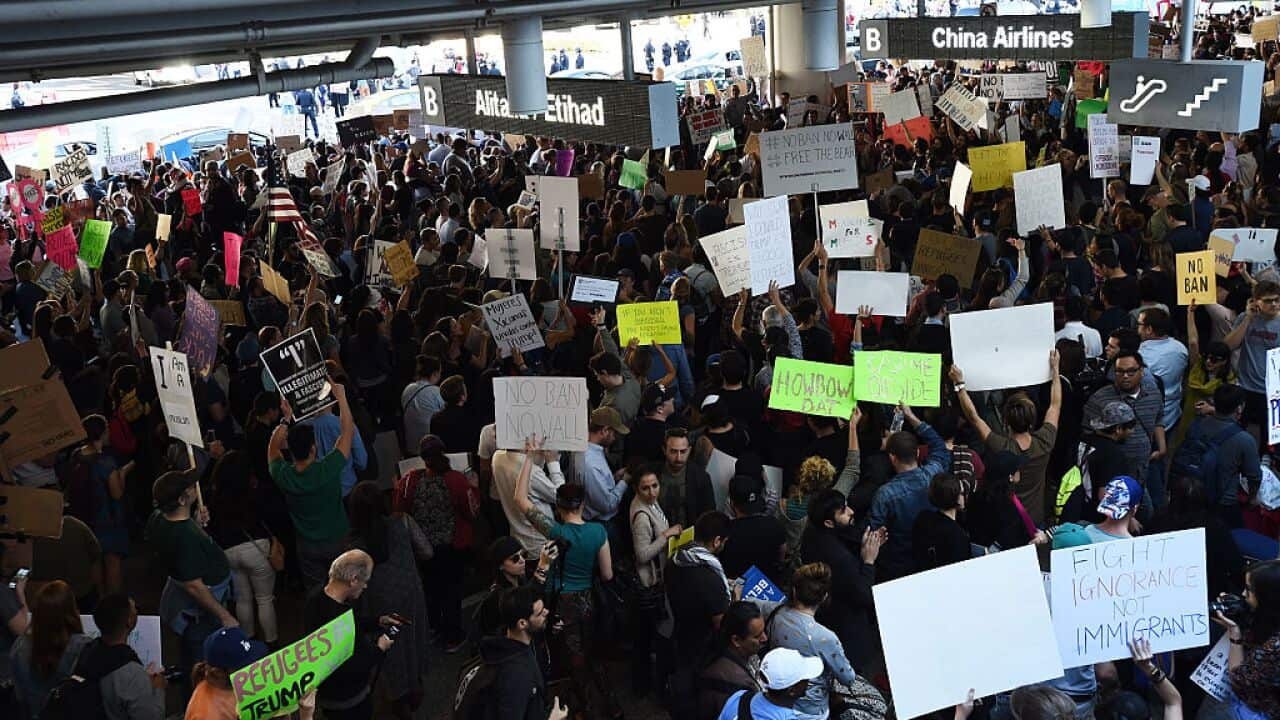Visa holders from seven predominantly-Muslim countries affected by US President Donald Trump's travel ban are rushing to board US-bound flights, fearing they might have only a slim window through which to enter the country after a federal judge temporarily blocked the ban.
Those who could travel immediately were being urged to do so because of uncertainty over whether the Justice Department would be granted an emergency freeze of the order issued on Friday by US District Judge James Robart in Seattle.
The government on Saturday suspended enforcement of the week-old ban as it scurried to appeal Robart's order, although an immigration lawyer said passengers in at least one African airport were told they couldn't get on the planes.
Rula Aoun, director of the Arab American Civil Rights League in Dearborn, Michigan, said her group is advising people to hurry.
"We're telling them to get on the quickest flight ASAP," said Aoun, whose group filed a lawsuit on Tuesday in federal court in Detroit asking a judge to declare Trump's immigration order unconstitutional.
Aoun said some people have had to make hard choices, including a Yemeni family expected to arrive at John F Kennedy International Airport on Sunday from Egypt without two of their children. The father and two of the children are US citizens, the mother has an immigrant visa, but the other two children did not yet have theirs and were left behind with relatives.
"They just don't want to take a chance of waiting," she said.
US officials have said up to 60,000 foreigners had their visas "provisionally revoked" to comply with Trump's order. Confusion during the rollout of the ban initially found green card holders caught in travel limbo, until the White House last week clarified that they would be allowed to enter and leave the US as they pleased.
Although the government suspended enforcement of the travel ban while it sought an emergency stay of Robart's order, some airlines reportedly still weren't letting some people from the seven countries board their planes, at least initially.
The State Department has advised refugee aid agencies that refugees who had been scheduled to travel before the order was signed will now be allowed into the US.
A State Department official said in an email obtained by The Associated Press that the government is "focusing on booking refugee travel through February 17," and they were working to have arrivals resume as soon as Monday.
American businesses affected by the ban also were jumping into action. Uber CEO Travis Kalanick, who quit Trump's business advisory council this week following criticism of his initial response to Trump's ban, said his company is buying plane tickets for some of its drivers who are stranded, tweeting Friday night that the head of litigation for the ride-hailing app is "buying a whole bunch of airline tickets ASAP!"

